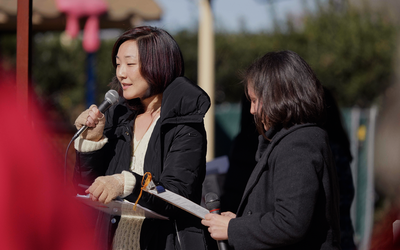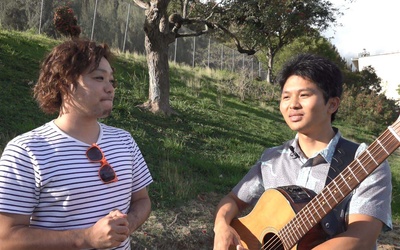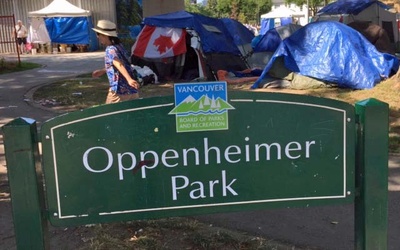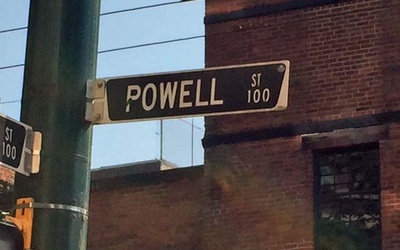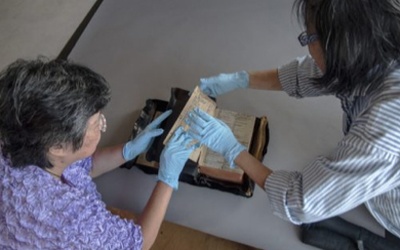Power of Our Stories

This series features projects that help to preserve and share Nikkei stories in different ways—through blogs, websites, social media, podcasts, art, films, zines, music, merchandise, and more. By highlighting these projects, we hope to share the importance of preserving and sharing Nikkei stories and inspire others to create their own.
If you have a project you think we should feature, or are interested in volunteering to help us conduct future interviews, email us at Editor@DiscoverNikkei.org.
Logo design: Alison Skilbred
Stories from this series
The Yonsei Memory Project: Keeping Stories Alive Through Inter-Generational Healing
Feb. 6, 2020 • Ian Hunter
For many Japanese American communities across the country, February 19 marks a Day of Remembrance. On that day seventy-seven years ago, in 1942, President Franklin Delano Roosevelt signed Executive Order 9066, turning the west coast of the United States into an active military zone and granting the secretary of war broad powers within those exclusionary zones. A reaction to widespread anti-Japanese xenophobia in the wake of Pearl Harbor, Executive Order 9066 paved the way for the illegal incarceration of Japanese …
Yoshiki Nagahama of One Okinawa - Media connecting Okinawan people
Jan. 6, 2020 • Keiko Fukuda
Colonia Okinawa The web magazine One Okinawa opened on October 30, 2019 as “a web media connecting Okinawan people (Uchinanchu) in the world.” (Note: October 30 is World Uchinanchu Day.) The same medium includes an interview with uchinanchu in Hawaii and a report of the fire that burned down Shuri Castle. The founder, Yoshiki Nagahama, is a former newspaper reporter of the Ryuku Shimpo and lives in Okinawa. “I had the idea of launching this web magazine for several years. …
Vancouver’s 1907 Anti-Asian Riots Revisited - Part 2
Dec. 31, 2019 • Norm Masaji Ibuki
Read Part 1 >> For those who may not be familiar with it, can you give a summary of the events leading up to the 1907 Riot? What happened and what was the aftermath? Didn’t things get worse after that for Asians? What about the racists? The 360 Video Walking Tour of the 1907 Anti-Asian Riots traces the history and route of the mob that attacked the Chinese Canadian and Japanese Canadian communities following the demonstration and parade organized by …
Vancouver’s 1907 Anti-Asian Riots Revisited - Part 1
Dec. 30, 2019 • Norm Masaji Ibuki
“Nothing could be more systematic than the determination with which the mob picked out Japanese and Chinese windows and spared those right adjoining if they were those of whites. On Columbia Avenue, for example, all the Chinese windows were broken and those of two white real estate brokers were left whole.” — The Vancouver Daily World newspaper reporting about the Powell Street Riot in 1907 Prior to making my first visit to the Powell Street Festival in August, I noticed …
50 Objects, 50 Stories: The Untold Stories of Incarcerated Japanese Americans during WWII
Aug. 30, 2019 • Kate Iio
“50 Objects/50 Stories of the American Japanese Incarceration” is a project made up of 50 objects that each give a raw, true narrative of the exclusion and confinement of 120,000 American Japanese during World War II. Objects owned by families, museums, and educational institutions have been researched, reviewed, and compiled to create a well-rounded representation of individual experiences in the internment camps. Stories that have gone untold for years are now presented in various forms of media such as articles, …

